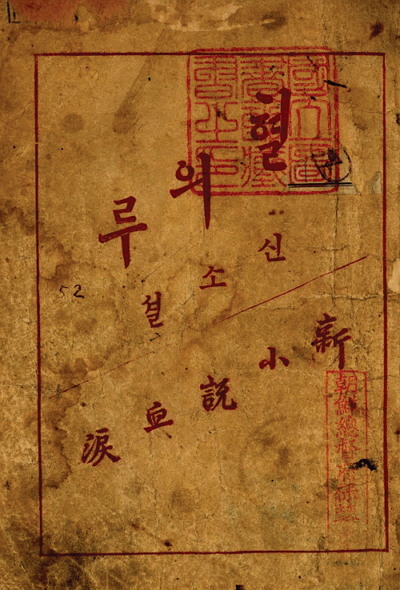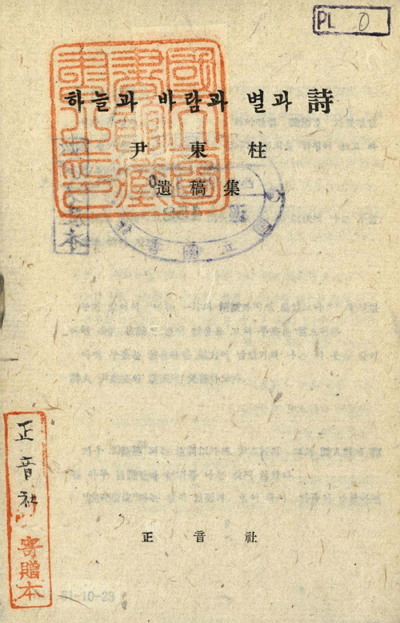The era of modern literature in Korea began in 1894 when the government launched sweeping reforms which called for establishing public schools, writing in Hangul, the Korean alphabet, instead of Chinese characters and opening the door to foreign literary works.
A special exhibition is underway in Seoul to offer an overview of modern Korean literature, which brewed in a tumultuous period characterized by the fall of the monarchy at the end of the Joseon era (1392-1910), the rise of Japanese imperialism and the growing influence of Western ideas.
“Special Exhibition of Korean Modern Literature” at the National Library of Korea presents books and literary magazines that contain original works of Korean modern writers from 1894 to 1950.
 |
Yi Yin-jik’s fiction “Tears of Blood” (1906) (National Library of Korea) |
The exhibition is chronologically divided into four sections. The first section touches on the birth of modern Korean literature in 1894. The second section deals with the period of 1910-20, when prominent writers Yi Kwang-su (1892-1950) and Choi Nam-seon (1890-1957) led the local literary community with themes of cultural modernization and nationalism. The third section (1930-40) marks the renaissance of modern Korean literature as Japan escalated its colonial oppression. The last section sheds light on the period of 1940-50, a so-called dark age of modern literature when the majority of literary magazines had to cease publication under the hoof of Japanese colonial rulers.
 |
Yun Dong-ju’s poem collection “Sky, Wind, Star and Poem” (1948) (National Library of Korea) |
A total of 156 books and 28 literary magazines are on display, including works by 93 Korean men of letters. Among them are the first Korean modern novel, “Tears of Blood” (1906) by Yi Yin-jik (1862-1916), and “The Camellias” (1936) by short story writer Kim Yu-jeong (1908-37). The first edition of the poem collection “Sky, Wind, Star and Poem” (1948), one of the most beloved works in Korea, by Yun Dong-ju (1917-45) is included in the selection.
Korea’s first modern literary magazine, “Youth,” started by Choi Nam-seon in 1908 when he was 18, is also on display.
“Through this valuable literature inheritance, I hope visitors can obtain knowledge of the past before grasping the present realities and dreaming of a better future,” said an official of the library. “As independence activist Shin Chae-ho put it, a nation, if it forgets its history, will have no future.”
“Special Exhibition of Korean Modern Literature” will continue until Dec. 7 in the main lobby of the National Library of Korea, Seocho-gu, southern Seoul. For more information, call (02) 3484-8830
By Ahn Sung-mi (
sahn@heraldcorp.com)









